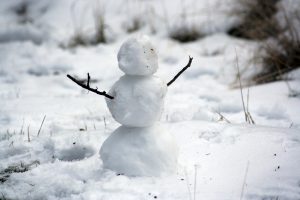
Snow days are the eagerly anticipated breaks from school children get in the winter to sled, build snowmen, and drink hot chocolate. Despite the chilly weather, children can work up a sweat as they play in the snow, making it a great opportunity for fun physical activity. While many children love snow days, it’s important to be aware of their safety.
Here are some ways to help keep children safe on snow days:
- Runny noses and colds are common in the winter, so make sure children wash their hands often to prevent the spread of germs.
- Exposed areas of skin such as cheeks, nose, ears, fingers, and toes are especially prone to frostnip and frostbite. Frostbite is a serious injury that is associated with hypothermia and requires immediate medical attention.
- Frostnip, a milder form of frostbite, can be treated at home by removing any wet clothing and rewarming the body. Gradually warm chilled body parts in warm (not hot) water for 20-30 minutes until the chilled body part has feeling again.
- To prevent frostnip and frostbite, dress children in layers of warm clothes including hats, gloves, scarves, thick socks, and insulated boots to keep them warm and dry. Choose wool and other fabrics over cotton. Waterproof top layers (pants and jackets) prevent other layers from getting wet. Also, make sure children come inside regularly to warm up.
- Have children wear sunscreen on their faces–while that may seem unnecessary, snow reflects the sun’s ultraviolet rays which can cause sunburn.
- Sledding can cause serious injuries, so have children wear helmets when they sled. Also, make sure young children are supervised. Avoid sledding on steep hills or near trees or busy roads. Watch out for rocks and other obstacles.
For more information, on safety this winter, visit http://kidshealth.org/en/parents/winter-safety.html.
What’s your child’s favorite snow day activity?